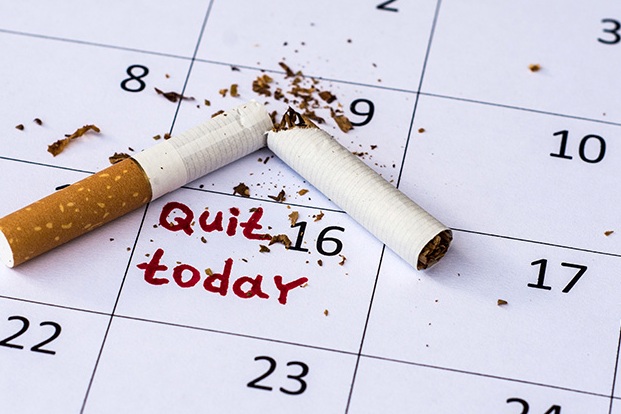Quit Smoking: Tips for First Hard Days
Apr 19, 2022
To quit smoking is one of the toughest journeys yet highly rewarding. Within the first hour you decide to quit smoking, your body goes through a roller coaster of changes. Your heart rate and blood pressure go down in the first half an hour, a few hours later the carbon monoxide levels decrease and weeks later you have stopped wheezing every other minute. However, all withdrawal symptoms are not positive.

In the first four days, the body has to adapt with the withdrawal of nicotine. In addition to feeling physically terrible, the mental and emotional state of the quitter is often all over the place. During nicotine withdrawal, one may feel restlessness and boredom, stress, fatigue, experience headaches, cravings, depression and anxiety, weight gain and much more.
The nicotine withdrawals last about 2 weeks and after these weeks pass, it gets a little easier. So what can help during these 2 weeks?
- Cravings normally only last a few minutes, so pause and relax and take a few deep breaths until the urge passes.
- Keep your mouth busy with gum, hard candy, and crunchy (healthy) food and sip cold water through straws to replace the act of sucking on a cigarette.
- Keep a list of the good changes as you begin to notice them so that when the urge to smoke strikes, you can look at your list as a reminder of what you’ve gained from quitting.
- Exercise offers a powerful distraction from cravings. Go for a walk or do some quick exercises when a craving hits.
- One of the instant perks of quitting is that your mouth tastes better and your breath smells better. So brush often to keep that clean, fresh mouth.
- Head to a public place where you can’t smoke like a movie theater, or a library or a store.
- Call or text a friend who supports your quitting habits. No need to talk to them about smoking or quitting, just talk about random topics.
- Start a new routine for times when you usually smoke like a new hobby, any work that is pending, or hang-out with friends and family.
- Avoid urges or trouble makers that make you want to smoke, such as alcohol, caffeine, or people you know who smoke.
- Remember the reason you quit. Write down a list, post it everywhere you spend time so that you always remember why you decided on going down this path.







